The world of billionaires is a constantly shifting landscape, with fortunes fluctuating based on market trends, technological advancements, and global events. This list provides a glimpse into the remarkable achievements and entrepreneurial journeys of some of the world’s wealthiest individuals
10. Mark Zuckerberg
- Net Worth: $114.1 billion
- Source of Wealth: Meta Platforms (formerly Facebook)
- Key Achievements: Founded Facebook, revolutionizing social media and connecting billions of people worldwide.
- Noteworthy Facts: Zuckerberg has faced challenges and controversies related to data privacy, misinformation, and the impact of social media on society.
Mark Zuckerberg: The Architect of Social Connection
Mark Elliot Zuckerberg, born May 14, 1984, is an American technology entrepreneur, media magnate, and philanthropist. He is best known as the founder and CEO of Meta Platforms, Inc., formerly known as Facebook, Inc., which owns Facebook, Instagram, WhatsApp, and other subsidiaries.
Early Life and Education:
Zuckerberg was born and raised in White Plains, New York. He attended Ardsley High School before transferring to Phillips Exeter Academy, a prestigious private school in New Hampshire. He later enrolled at Harvard University, where he initially studied psychology and computer science.
The Birth of Facebook:
While still a student at Harvard, Zuckerberg created a social networking website called “Thefacebook” in February 2004. The website quickly gained popularity among Harvard students and soon expanded to other universities across the United States. In 2005, Zuckerberg dropped out of Harvard to focus on Facebook full-time, moving the company to Palo Alto, California.
Facebook’s Meteoric Rise:
Facebook’s growth was nothing short of meteoric. It rapidly expanded its user base, connecting people worldwide and revolutionizing the way people communicate, share information, and build communities. The company introduced innovative features such as the News Feed, Facebook Groups, and Facebook Marketplace, further enhancing user engagement and expanding its reach.
Acquisitions and Expansion:
Zuckerberg pursued a strategy of strategic acquisitions, acquiring Instagram in 2012 and WhatsApp in 2014, significantly expanding Facebook’s reach and dominance in the social media landscape.
Meta Platforms and the Metaverse:
In 2021, Facebook rebranded itself as Meta Platforms, reflecting its ambitious vision for the future, which includes building the “metaverse,” an immersive virtual reality experience. This ambitious project involves developing technologies like virtual reality (VR) and augmented reality (AR) to create a new digital realm where people can interact, work, and play.
Philanthropy:
Zuckerberg and his wife, Priscilla Chan, are active philanthropists. They established the Chan Zuckerberg Initiative, a philanthropic organization focused on advancing human potential and solving some of the world’s most challenging problems, including eradicating disease, improving education, and addressing issues of equity and justice.
Controversies and Challenges:
Facebook’s meteoric rise has not been without its challenges. The company has faced numerous controversies, including concerns about:
- Data privacy: Facebook has faced scrutiny over its data collection practices and the use of user data for advertising purposes.
- Misinformation and disinformation: The platform has been criticized for its role in the spread of misinformation and disinformation, particularly during elections and other significant events.
- Social and political impact: Concerns have been raised about the impact of social media on mental health, political polarization, and the erosion of democratic discourse.
- Competition and antitrust: Facebook has faced antitrust lawsuits from regulators, who allege that the company has engaged in anti-competitive practices to maintain its dominance in the social media market.
Legacy:
Despite the challenges, Facebook, under Zuckerberg’s leadership, has undeniably transformed the way people connect and interact. It has empowered individuals and organizations to share information, build communities, and mobilize for social change.
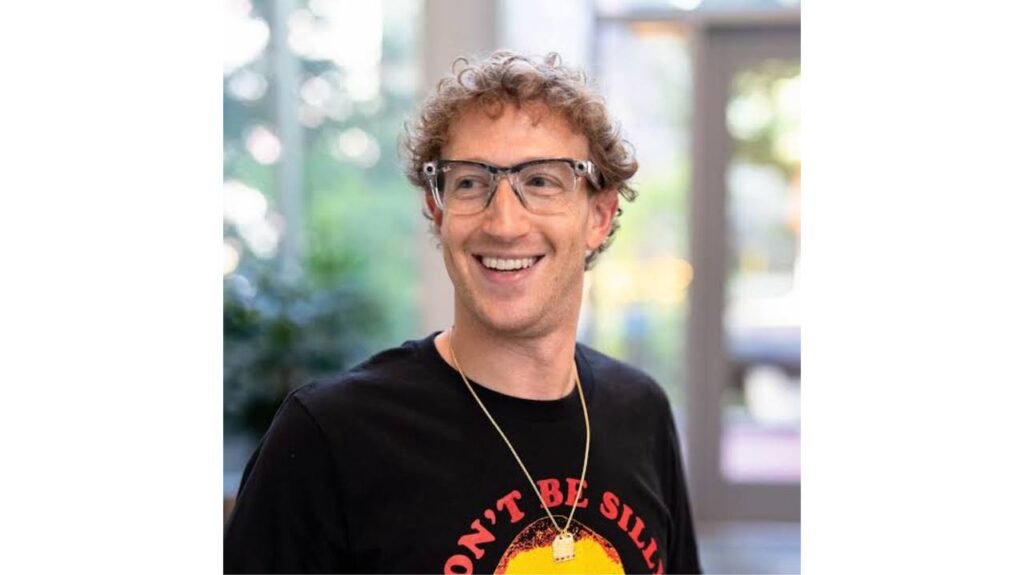
9. Steve Ballmer
- Net Worth: $115.9 billion
- Source of Wealth: Microsoft
- Key Achievements: Former CEO of Microsoft, played a key role in the company’s growth and success.
- Noteworthy Facts: Ballmer is a prominent investor and philanthropist, with a focus on education and healthcare
Steve Ballmer: A Force in Technology and Beyond
Steve Ballmer, a name synonymous with Microsoft, is a prominent figure in the world of technology and business. His journey from a Harvard classmate of Bill Gates to the CEO of Microsoft, and subsequently, a successful investor and philanthropist, exemplifies his dynamic personality and entrepreneurial spirit.
Early Life and Education:
Born on March 24, 1956, in Detroit, Michigan, Steve Ballmer grew up in an affluent suburb. He attended Harvard University, where he studied applied mathematics and economics, and forged a lifelong friendship with Bill Gates. After graduating in 1977, he briefly worked as a product manager at Procter & Gamble before joining Gates at Microsoft.
Rise at Microsoft:
Ballmer joined Microsoft in 1980 as the company’s 30th employee. His energy, enthusiasm, and business acumen quickly propelled him through the ranks. He held various key positions, including President and Chief Executive Officer, overseeing Microsoft’s growth and expansion during a pivotal era in the technology industry.
Key Accomplishments at Microsoft:
- Overseeing Microsoft’s Growth: Under Ballmer’s leadership, Microsoft expanded its dominance in the software market, particularly with the Windows operating system and Microsoft Office suite.
- Acquisitions and Investments: Ballmer oversaw several key acquisitions, including Skype, LinkedIn, and the mobile phone manufacturer Nokia, in an effort to diversify Microsoft’s business and compete in the evolving mobile market.
- Focus on Cloud Computing: Recognizing the growing importance of cloud computing, Ballmer initiated a shift in Microsoft’s strategy, emphasizing cloud services like Azure.
Beyond Microsoft:
- Los Angeles Clippers Ownership: In 2014, Ballmer purchased the Los Angeles Clippers NBA basketball team for a record-breaking $2 billion, demonstrating his passion for sports and his entrepreneurial spirit.
- Philanthropy: Ballmer and his wife, Connie, are active philanthropists, focusing on education, healthcare, and social justice initiatives through their foundation, the Ballmer Group.
Leadership Style:
Known for his energetic and passionate personality, Ballmer is a charismatic leader with a strong competitive drive. He is known for his high-energy speeches and his unwavering belief in the power of technology to transform the world.
Legacy:
Steve Ballmer played a pivotal role in shaping the technology landscape, leading Microsoft through a period of significant growth and innovation. His contributions to the tech industry, his entrepreneurial ventures, and his philanthropic endeavors have left a lasting impact on the world.
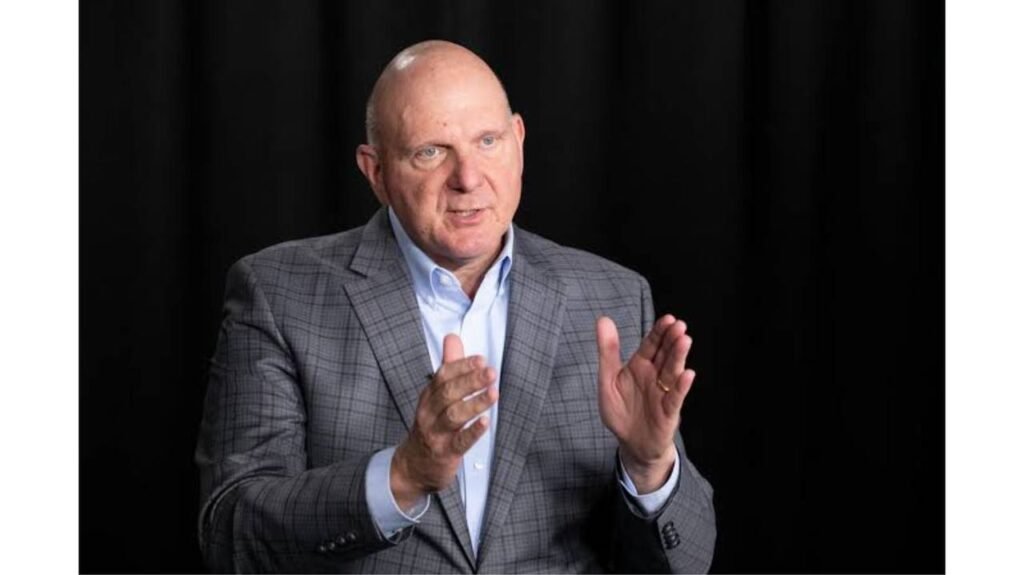
8. Larry Ellison
- Net Worth: $119.6 billion
- Source of Wealth: Oracle
- Key Achievements: Founded Oracle Corporation, a leading provider of database software and cloud services.
- Noteworthy Facts: Ellison is known for his entrepreneurial spirit and his passion for technology and innovation.
Larry Ellison: A Tech Titan’s Journey
Larry Ellison, a name synonymous with technological innovation and entrepreneurial success, is a prominent figure in the world of business. As the co-founder and former CEO of Oracle Corporation, a leading provider of database software and cloud services, Ellison has amassed immense wealth and solidified his position as one of the world’s most influential tech titans.
Early Life and Career:
Born in 1944, Ellison had a challenging childhood. Raised by his adoptive parents, he faced personal hardships that instilled in him a strong sense of independence and a drive to succeed. He attended the University of Illinois and the University of Chicago, but did not complete his degree.
Ellison’s career in technology began in the 1970s. He worked at Ampex Corporation, where he developed an interest in database management systems. This experience laid the foundation for his future endeavors.
The Oracle Story:
In 1977, Ellison, along with Bob Miner and Ed Oates, co-founded Software Development Laboratories (SDL), which later became Oracle Corporation. They focused on developing relational database management systems, a groundbreaking technology at the time.
Ellison’s leadership and vision were instrumental in Oracle’s rapid growth. The company quickly gained traction, becoming a dominant player in the database market. Oracle’s software became the backbone of many businesses, powering critical applications across various industries.
Ellison’s Leadership and Innovation:
As CEO, Ellison drove Oracle’s aggressive expansion through a series of acquisitions, acquiring numerous companies to broaden the company’s product offerings and market reach. He fostered a competitive and demanding work environment, pushing his employees to achieve ambitious goals.
Ellison’s entrepreneurial spirit extended beyond Oracle. He pursued diverse interests, including yachting, sports car racing, and real estate. He famously purchased the entire Hawaiian island of Lanai, transforming it into a sustainable tourism destination.
Impact and Legacy:
Larry Ellison’s impact on the technology industry is undeniable. He pioneered the development of relational databases, a technology that has become fundamental to modern computing. Oracle, under his leadership, grew into a global technology giant, employing tens of thousands of people worldwide.
Beyond his business achievements, Ellison is known for his philanthropy. He has made significant contributions to various charitable causes, including medical research, education, and environmental conservation.
In Conclusion:
Larry Ellison’s journey from a young man with a challenging upbringing to one of the world’s wealthiest individuals is a testament to his entrepreneurial spirit, visionary leadership, and relentless drive for success. His contributions to the technology industry have had a profound impact on the world, and his legacy will continue to inspire future generations of entrepreneurs and innovators.

7. Sergey Brin
- Net Worth: $122.6 billion
- Source of Wealth: Google
- Key Achievements: Co-founded Google alongside Larry Page, revolutionizing the internet and shaping the digital age.
- Noteworthy Facts: Brin has been actively involved in philanthropic endeavors, focusing on areas such as science, technology, and education.
Sergey Brin: A Visionary in the Digital Age
Sergey Brin, a name synonymous with the internet age, is an American computer scientist and entrepreneur best known as the co-founder of Google, the world’s leading search engine. Born in Moscow, Russia, in 1973, Brin immigrated to the United States with his family at a young age. His journey from a curious child to a tech titan is a testament to his intellectual brilliance, entrepreneurial spirit, and unwavering pursuit of innovation.
Early Life and Education:
- A Prodigy in the Making: Brin displayed an early aptitude for mathematics and computer science. He attended Eleanor Roosevelt High School in Maryland, where he excelled academically.
- Academic Excellence: He pursued higher education at the University of Maryland, College Park, graduating with a Bachelor of Science in Mathematics and Computer Science. He then enrolled at Stanford University, where he earned a Master of Science in Computer Science.
The Birth of Google:
- Meeting Larry Page: While pursuing his Ph.D. at Stanford, Brin met Larry Page, a fellow graduate student with a shared passion for computer science and a vision for a more efficient search engine.
- BackRub to Google: Their initial project, known as “BackRub,” analyzed the link structure of the World Wide Web to rank websites based on their importance. This groundbreaking concept eventually evolved into Google, the search engine that would revolutionize how people access and utilize information.
- Early Days of Google: Brin and Page, driven by their vision and relentless pursuit of innovation, built Google from the ground up in a Stanford University dorm room. They faced numerous challenges, but their unwavering belief in their technology and their ability to attract top talent fueled their rapid growth.
Google’s Meteoric Rise:
- Innovation at the Core: Google’s innovative approach to search, combined with its user-friendly interface, quickly gained popularity, surpassing existing search engines and becoming the dominant force in the online world.
- Expanding Horizons: Google’s success led to the development of numerous other groundbreaking products and services, including Gmail, Google Maps, Google Earth, Android, and YouTube.
- From Search to AI: Brin’s vision extended beyond search, embracing artificial intelligence, self-driving cars, and other cutting-edge technologies. Google’s parent company, Alphabet Inc., was formed to oversee a diverse portfolio of ambitious projects.
Philanthropy and Beyond:
- Giving Back: Brin is a prominent philanthropist, dedicating significant resources to various causes, including scientific research, education, and social causes.
- Beyond Google: Brin continues to explore new frontiers, investing in innovative projects and supporting scientific research in areas such as life sciences and space exploration.
Legacy:
Sergey Brin’s contributions to the world of technology are undeniable. He, along with Larry Page, co-founded Google, a company that has fundamentally reshaped the way people interact with information, communicate, and conduct their daily lives. Their vision and innovation have not only transformed the internet but have also had a profound impact on society as a whole. Brin’s legacy will continue to inspire future generations of innovators and entrepreneurs.

6. Larry Page
- Net Worth: $127.4 billion
- Source of Wealth: Google
- Key Achievements: Co-founded Google, transforming the way people access and utilize information.
- Noteworthy Facts: Page played a pivotal role in the development of Google Search, Gmail, and other groundbreaking Google products.
Larry Page: A Visionary in the Digital Age
Lawrence Edward Page, born on March 26, 1973, is an American internet entrepreneur and computer scientist best known as the co-founder of Google, the world’s leading search engine. Alongside Sergey Brin, Page revolutionized how people access and utilize information, shaping the digital landscape as we know it today.
Early Life and Education:
- Born in East Lansing, Michigan, Page’s parents were both involved in computer science, fostering an early interest in technology.
- He attended a Montessori school in his early years and later graduated from East Lansing High School.
- Page pursued his passion for computer science at the University of Michigan, earning a Bachelor of Science degree in engineering.
- He continued his studies at Stanford University, where he embarked on his groundbreaking research on the World Wide Web.
The Birth of Google:
- While at Stanford, Page and fellow graduate student Sergey Brin began collaborating on a research project to analyze the structure of the World Wide Web.
- They developed a novel search algorithm called PageRank, which ranked web pages based on the number and quality of links pointing to them.
- Recognizing the immense potential of their creation, they founded Google in 1998, initially operating out of a friend’s garage.
Leading Google to Dominance:
- As CEO of Google, Page played a pivotal role in guiding the company’s growth and development.
- Under his leadership, Google expanded its offerings beyond search, venturing into areas such as advertising, email, maps, and mobile operating systems (Android).
- Google’s innovations, such as Gmail, Google Maps, and YouTube, transformed how people communicate, navigate, and consume information.
Beyond Search: Alphabet Inc.
- In 2015, Page and Brin restructured Google into a new parent company called Alphabet Inc.
- This move aimed to streamline Google’s core businesses while providing greater autonomy to explore ambitious “moonshot” projects in areas like artificial intelligence, self-driving cars, and life sciences.
Philanthropy and Innovation:
- Page is a prominent philanthropist, actively involved in various philanthropic endeavors.
- He has invested in innovative technologies and supported organizations focused on climate change, healthcare, and education.
Legacy:
- Larry Page’s contributions to the world of technology are undeniable.
- He and Sergey Brin co-founded one of the most influential companies in history, transforming how people access and interact with information.
- Their vision and innovation have shaped the digital age and continue to drive progress in areas such as artificial intelligence, self-driving cars, and space exploration.
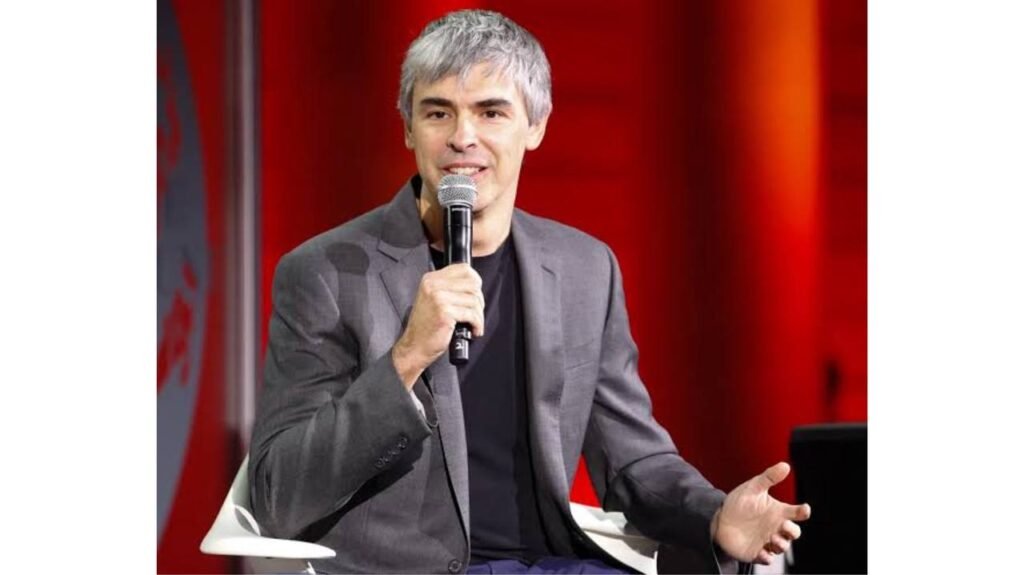
5. Warren Buffett
- Net Worth: $139.3 billion
- Source of Wealth: Berkshire Hathaway
- Key Achievements: Built Berkshire Hathaway into a diversified conglomerate, investing in a wide range of businesses and achieving significant long-term returns.
- Noteworthy Facts: Widely regarded as one of the most successful investors in history, Buffett is known for his value investing philosophy and long-term investment approach.
Warren Buffett: The Oracle of Omaha
Warren Edward Buffett, often referred to as the “Oracle of Omaha,” is an American investor, businessman, and philanthropist. He is the chairman and CEO of Berkshire Hathaway, a multinational conglomerate holding company. Buffett’s investment success has made him one of the wealthiest people in the world, and his investment philosophy has profoundly influenced generations of investors.
Early Life and Career:
Born in 1930 in Omaha, Nebraska, Buffett developed an early interest in business. He began investing at a young age, delivering newspapers and operating a pinball machine business. His interest in finance led him to the Wharton School of the University of Pennsylvania, where he studied economics. He later transferred to the University of Nebraska and eventually earned a Master of Science in Economics from Columbia Business School.
Buffett’s investment philosophy was heavily influenced by the teachings of Benjamin Graham, a renowned investor and professor at Columbia Business School. Graham’s value investing approach, which emphasizes buying undervalued assets with a margin of safety, became the cornerstone of Buffett’s investment strategy.
Building Berkshire Hathaway:
In 1962, Buffett acquired control of Berkshire Hathaway, a struggling textile company. He transformed the company into a diversified holding company, acquiring stakes in a wide range of businesses, including insurance, manufacturing, retail, and finance.
Key Investment Principles:
- Value Investing: Buffett’s core philosophy centers around value investing, which focuses on identifying undervalued assets and purchasing them at a discount to their intrinsic value.
- Long-Term Perspective: Buffett is a long-term investor, emphasizing patience and avoiding short-term market fluctuations.
- Focus on Business Quality: He prioritizes investing in businesses with strong fundamentals, durable competitive advantages, and a strong management team.
- Margin of Safety: Buffett emphasizes the importance of purchasing assets at a significant discount to their intrinsic value, creating a margin of safety for his investments.
- Risk Aversion: He avoids excessive risk and focuses on investments with predictable and sustainable cash flows.
Notable Investments:
- Coca-Cola: One of Berkshire Hathaway’s most successful investments, Buffett’s stake in Coca-Cola has generated significant returns over the years.
- See’s Candies: A classic example of Buffett’s focus on consumer brands with strong competitive advantages.
- Geico: Berkshire Hathaway’s insurance subsidiary, Geico, has been a major contributor to the company’s success.
Philanthropy:
Buffett is a renowned philanthropist, having pledged to donate the majority of his wealth to charitable causes, primarily through the Bill & Melinda Gates Foundation. He has inspired many other wealthy individuals to engage in philanthropy and has become a role model for giving back to society.
Legacy:
Warren Buffett’s impact on the world of investing and philanthropy is undeniable. His investment philosophy, combined with his business acumen and philanthropic endeavors, has earned him the respect and admiration of investors, business leaders, and the public alike. He continues to be a source of inspiration for aspiring investors and entrepreneurs around the world.
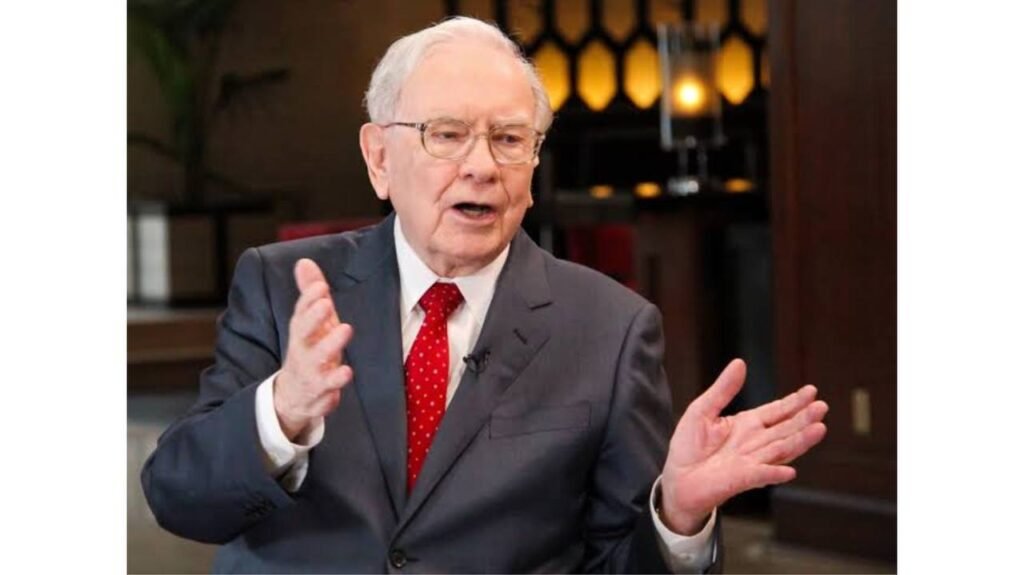
4. Bill Gates
Noteworthy Facts: A prominent philanthropist, Gates has dedicated significant resources to global health and development through the Bill & Melinda Gates Foundation.
Net Worth: $141.1 billion
Source of Wealth: Microsoft
Key Achievements: Co-founded Microsoft, revolutionizing personal computing and shaping the modern technology landscape.
Bill Gates: A Tech Visionary and Global Philanthropist
A Technological Pioneer:
Bill Gates, born William Henry Gates III, is an American business magnate, investor, author, and philanthropist. He is best known as the co-founder of Microsoft, the world’s largest personal computer software company.
- Early Life and Education: Born in Seattle, Washington, Gates displayed a keen interest in computers from a young age. He attended Lakeside School, where he gained access to a computer terminal and began developing his programming skills. In 1973, he enrolled at Harvard University, but dropped out two years later to pursue his passion for software development.
- The Birth of Microsoft: In 1975, Gates co-founded Microsoft with his childhood friend Paul Allen. They initially focused on developing BASIC interpreters for the Altair 8800, one of the first personal computers. The success of MS-DOS, the operating system developed for IBM personal computers, propelled Microsoft to the forefront of the personal computer revolution.
- Microsoft’s Rise: Under Gates’s leadership, Microsoft expanded rapidly, developing a suite of software products that became ubiquitous, including Windows, Microsoft Office, and Internet Explorer. Microsoft’s dominance in the software industry made Gates one of the richest people in the world.
Beyond Business: Philanthropy and Innovation:
- The Bill & Melinda Gates Foundation: In 2000, Gates and his then-wife Melinda French Gates established the Bill & Melinda Gates Foundation, one of the world’s largest private charitable foundations. The foundation focuses on global health, poverty reduction, and education.
- Philanthropic Impact: The Gates Foundation has made significant contributions to global health initiatives, including the fight against infectious diseases like polio, malaria, and HIV/AIDS. It has also invested heavily in education, particularly in improving access to quality education for underserved communities.
- Technological Innovation: Gates continues to be involved in various technological initiatives, including investments in renewable energy, artificial intelligence, and other emerging technologies.
Key Contributions:
- Revolutionized Computing: Gates played a pivotal role in the personal computer revolution, making computing accessible to millions of people worldwide.
- Philanthropic Leadership: The Bill & Melinda Gates Foundation has transformed global philanthropy, setting a new standard for large-scale charitable giving.
- Advocacy for Global Health: Gates has been a vocal advocate for global health initiatives, raising awareness and mobilizing resources to address critical health challenges.
Legacy:
Bill Gates is a visionary entrepreneur, a successful businessman, and a dedicated philanthropist. His contributions to the technology industry and his commitment to global health and development have had a profound impact on the world. He serves as an inspiration to aspiring entrepreneurs and a model for effective philanthropy.
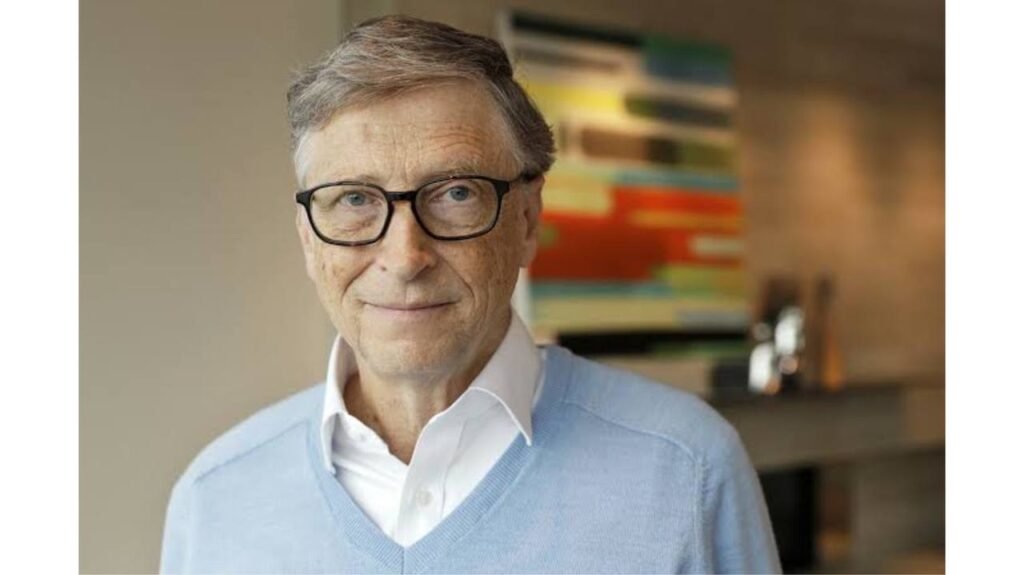
3. Jeff Bezos
- Net Worth: $186.1 billion
- Source of Wealth: Amazon
- Key Achievements: Founded Amazon, transforming online retail and revolutionizing e-commerce.
- Noteworthy Facts: Bezos remains a significant figure in the technology and space industries, with investments in Blue Origin and other ventures.
eff Bezos: The Amazonian Who Revolutionized E-commerce
Jeff Bezos, a name synonymous with e-commerce and innovation, is an American entrepreneur, investor, and philanthropist. His journey from a small online bookstore to building one of the world’s most dominant companies is a testament to his vision, entrepreneurial spirit, and relentless pursuit of customer obsession.
Early Life and Education:
Born Jeffrey Preston Bezos in Albuquerque, New Mexico, in 1964, Bezos spent his early childhood in Texas. He excelled academically, graduating as the valedictorian of his high school class. He then pursued higher education at Princeton University, earning a degree in electrical engineering and computer science.
The Birth of Amazon:
In 1994, Bezos, then working on Wall Street, recognized the immense potential of the internet. He envisioned a world where customers could easily access a vast selection of books online. With this vision, he quit his job and moved to Seattle, Washington, to launch Amazon.com from his garage.
From Bookstore to Global Empire:
Initially focused on selling books, Amazon quickly expanded its offerings to include a wide range of products, including electronics, clothing, home goods, and more. Bezos prioritized customer satisfaction, investing heavily in customer service, fast shipping, and a user-friendly online experience.
Key Innovations and Achievements:
- Customer Obsession: Bezos instilled a customer-centric culture within Amazon, prioritizing customer needs and continuously seeking ways to improve the customer experience.
- Technological Innovation: Amazon pioneered many innovations in e-commerce, including one-click ordering, personalized recommendations, and cloud computing services (Amazon Web Services – AWS).
- Disruptive Innovation: Amazon disrupted traditional retail models, challenging brick-and-mortar stores and transforming the way people shop.
- Global Expansion: Amazon expanded its operations globally, establishing a significant presence in numerous countries and becoming a global e-commerce giant.
Beyond Amazon:
- Space Exploration: Bezos founded Blue Origin, a private aerospace company, with the goal of advancing space exploration and making space travel more accessible.
- Philanthropy: Bezos and his ex-wife, MacKenzie Scott, have pledged billions of dollars to philanthropic causes, including education, poverty alleviation, and climate change.
Leadership Style and Impact:
- Long-Term Vision: Bezos is known for his long-term vision and his willingness to invest heavily in future growth, even if it means short-term losses.
- Data-Driven Decisions: Amazon is heavily reliant on data analysis, and Bezos emphasizes the importance of data-driven decision-making in all aspects of the business.
- Continuous Innovation: Bezos encourages a culture of innovation and experimentation, constantly seeking new ways to improve and expand the business.
Legacy:
Jeff Bezos’s impact on the global economy and society is undeniable. He has revolutionized the way we shop, work, and interact with technology. His entrepreneurial spirit, visionary leadership, and commitment to innovation have inspired countless entrepreneurs and continue to shape the future of business and technology.
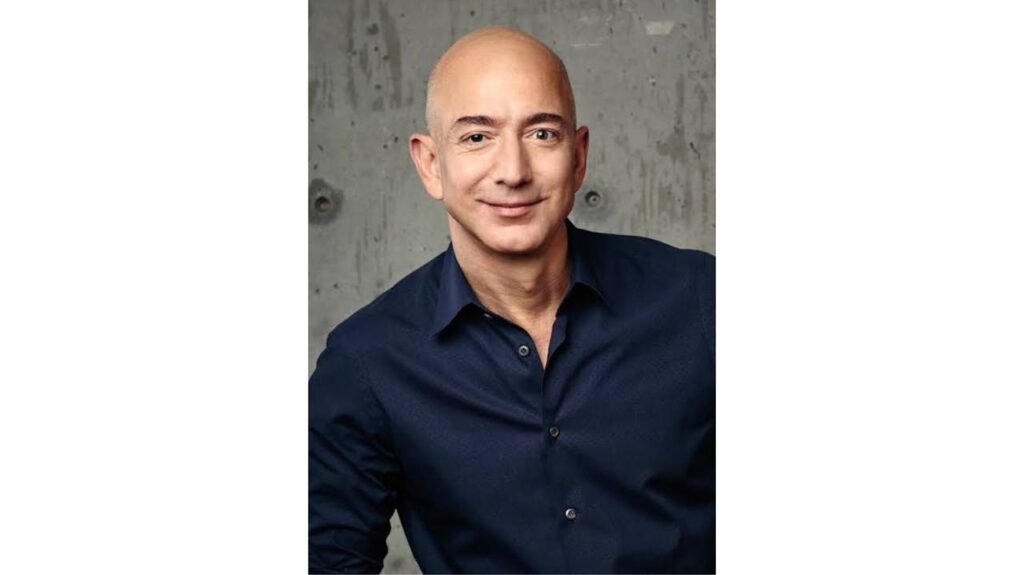
2. Bernard Arnault & family
- Net Worth: $231.5 billion
- Source of Wealth: LVMH (luxury goods)
- Key Achievements: Built LVMH into a global luxury goods conglomerate, encompassing renowned brands like Louis Vuitton, Dior, and Moët & Chandon.
- Noteworthy Facts: The Arnault family has amassed significant wealth through its control of LVMH, one of the world’s most valuable companies.
Bernard Arnault & Family: A Legacy of Luxury
Bernard Arnault, a French businessman and art collector, stands as a titan in the world of luxury goods. As the Chairman and CEO of LVMH Moët Hennessy Louis Vuitton SE, the world’s largest luxury goods company, Arnault has amassed a vast fortune and solidified his position as one of the wealthiest individuals globally.
Building an Empire:
- Early Career: Arnault’s journey began in the construction industry, where he honed his business acumen.
- Acquisition of Boussac Saint-Frères: A pivotal moment came with his acquisition of the ailing textile conglomerate Boussac Saint-Frères in 1984. While the textile businesses were eventually sold off, Arnault recognized the value of the group’s luxury brand, Christian Dior.
- The Rise of LVMH: Arnault orchestrated a hostile takeover of LVMH, a company formed from the merger of Louis Vuitton and Moët Hennessy. He then embarked on an ambitious strategy of acquiring and developing a diverse portfolio of luxury brands.
LVMH: A Global Luxury Powerhouse:
- Brand Portfolio: Under Arnault’s leadership, LVMH has grown into a global behemoth, encompassing a diverse range of iconic brands across various luxury sectors, including:
- Fashion & Leather Goods: Louis Vuitton, Dior, Givenchy, Fendi, Celine, Loewe
- Wines & Spirits: Moët & Chandon, Dom Pérignon, Hennessy
- Perfumes & Cosmetics: Parfums Christian Dior, Guerlain, Givenchy Parfums
- Watches & Jewelry: Bulgari, TAG Heuer, Hublot
- Retail: Sephora, DFS
- Strategic Acquisitions: Arnault has demonstrated a keen eye for identifying and acquiring promising luxury brands, consistently expanding LVMH’s global reach and market dominance.
Beyond Luxury:
- Art Patronage: Arnault is a renowned art collector, amassing an impressive collection of modern and contemporary art. He is also a significant patron of the arts, supporting museums and cultural institutions.
- Philanthropy: While his philanthropic activities are less prominent compared to some other billionaires, Arnault has made contributions to various charitable causes.
The Arnault Family:
- Succession Planning: Arnault has been actively grooming his children to succeed him at LVMH.
- Delphine Arnault: A prominent figure within the LVMH group, she serves as CEO of Christian Dior.
- Antoine Arnault: Holds executive positions at several LVMH brands, including Berluti and Rimowa.
- Family Influence: The Arnault family’s influence extends beyond LVMH, with investments in other sectors such as real estate and technology.
Bernard Arnault’s Legacy:
Bernard Arnault’s impact on the global luxury goods industry is undeniable. His strategic vision, astute business acumen, and focus on long-term growth have transformed LVMH into a global powerhouse. His influence extends beyond the business world, impacting fashion, culture, and the art market. As the Arnault family continues to play a significant role in the company’s future, the legacy of LVMH and its founder is likely to endure for generations to come.

1. Elon Musk
- Net Worth: $251.2 billion (as of November 17, 2024)
- Source of Wealth: Tesla, SpaceX, Twitter
- Key Achievements: Revolutionized electric vehicles with Tesla, spearheaded space exploration with SpaceX, and acquired Twitter, transforming the social media landscape.
- Noteworthy Facts: Known for his innovative and ambitious ventures, Musk is a prominent figure in technology, space exploration, and renewable energy.
Top 10 Courses For Professional Business….click here
Elon Musk: A Visionary Entrepreneur Shaping the Future
Elon Musk is a South African-born Canadian-American entrepreneur, investor, and engineer who has revolutionized multiple industries, including electric vehicles, space exploration, and technology. His visionary ventures and ambitious goals have made him one of the most influential figures of the 21st century.
Early Life and Education:
Born in Pretoria, South Africa, in 1971, Elon Musk displayed a keen interest in technology and science from an early age. He developed a passion for computers and even sold his first software program, a video game called Blastar, at the age of 12. Musk moved to Canada at 17 to escape mandatory military service in South Africa and later attended Queen’s University in Kingston, Ontario. He subsequently transferred to the University of Pennsylvania, where he earned degrees in physics and economics.
- Zip2: Musk co-founded Zip2, an online city guide software company, with his brother Kimbal. The company was successfully sold to Compaq for $307 million in 1999.
- X.com: Musk co-founded X.com, an online financial services company, which later merged with Confinity to form PayPal. eBay acquired PayPal in 2002 for $1.5 billion.
- SpaceX: Founded in 2002, SpaceX is a space exploration and aerospace manufacturer. The company has achieved groundbreaking milestones, including developing reusable rockets, successfully landing spacecraft on Mars, and launching commercial spaceflights.
- Tesla: Founded in 2003, Tesla is an American electric vehicle and clean energy company. Musk’s leadership has propelled Tesla to become a global leader in electric vehicles, revolutionizing the automotive industry.
- The Boring Company: Founded in 2016, The Boring Company aims to create underground transportation tunnels to alleviate traffic congestion.
- Neuralink: Founded in 2016, Neuralink is a neurotechnology company developing brain-computer interfaces with the goal of connecting the human brain to computers.
- Twitter (now X): In 2022, Musk acquired Twitter, renaming it X, and has since implemented significant changes to the social media platform.
Key Achievements and Innovations:
- Revolutionizing Electric Vehicles: Musk’s leadership at Tesla has driven the mass adoption of electric vehicles, significantly contributing to the fight against climate change.
- Space Exploration and Innovation: SpaceX has achieved remarkable milestones in space exploration, including reusable rockets and successful missions to Mars.
- Transforming Social Media: Musk’s acquisition of Twitter has sparked significant debate and change in the social media landscape.
- Technological Innovation: Musk’s companies are at the forefront of technological innovation, pushing the boundaries of electric vehicles, space travel, and artificial intelligence.
Impact and Influence:
Elon Musk is a highly influential figure in the global business and technology landscape. His visionary leadership, ambitious goals, and innovative spirit have inspired millions around the world. He has challenged conventional thinking, pushed the boundaries of what is possible, and driven significant advancements in various fields.
Controversies and Criticisms:
- Labor Practices: Tesla has faced criticism regarding labor practices at its factories, including allegations of workplace safety issues and union-busting.
- Social Media Policies: Musk’s changes to Twitter have sparked controversy and debate, with concerns raised about free speech, misinformation, and content moderation.
- Public Statements: Musk’s public statements and tweets have often been controversial, drawing criticism for their sometimes inflammatory or misleading nature.
Conclusion:
Elon Musk is a complex and multifaceted figure who has undeniably left an indelible mark on the world. His entrepreneurial ventures have revolutionized multiple industries, and his ambitions extend to addressing some of humanity’s greatest challenges, such as climate change and space exploration. While his methods and public persona have often attracted controversy, his impact on the world is undeniable.

Disclaimer: This list is based on real-time data and is subject to change. Net worth figures can fluctuate significantly due to market conditions, investments, and other factors.
FAQs
Q: How is the net worth of these billionaires calculated?
A: Net worth is typically calculated by estimating the total value of an individual’s assets (including stocks, real estate, businesses, art collections, etc.) and subtracting their liabilities (debts). These figures are often based on publicly available information, company valuations, and market fluctuations, and therefore can change frequently.
Q: How often is this billionaires list updated?
A: Most reputable lists (like Forbes or Bloomberg Billionaires Index) are updated regularly, often daily or in real-time, to reflect changes in market conditions and asset values. The blog post should specify the source and the date of the data presented.
Q: Does this list only include individuals, or are family fortunes or inherited wealth also considered?
A: Most lists primarily focus on individuals who have actively built their wealth, although some may include individuals who inherited significant portions of their wealth but have also actively managed or grown it. The methodology of the specific list used should be clarified in the blog post.
Q: Why do the rankings sometimes differ between different publications or sources?
A: Variations in rankings can occur due to several factors: Different data sources: Publications may use different sources for their valuations.
Different valuation methodologies: Different methods may be used to estimate the value of private companies or illiquid assets.
Different update frequencies: Lists updated at different times may reflect different market conditions.
Q: What is the purpose of these billionaires lists, and what can we learn from them?
A: These lists serve various purposes: News and information: They provide insights into the world’s wealthiest individuals and their businesses.
Economic indicators: They can reflect broader economic trends and market performance.
Inspiration (and sometimes controversy): They can inspire entrepreneurial aspirations but also spark discussions about wealth inequality. It’s important to remember that these lists represent a snapshot in time and focus on financial wealth, not necessarily other forms of success or impact.


